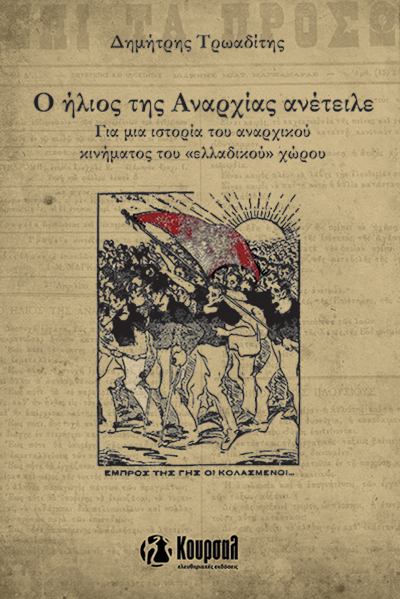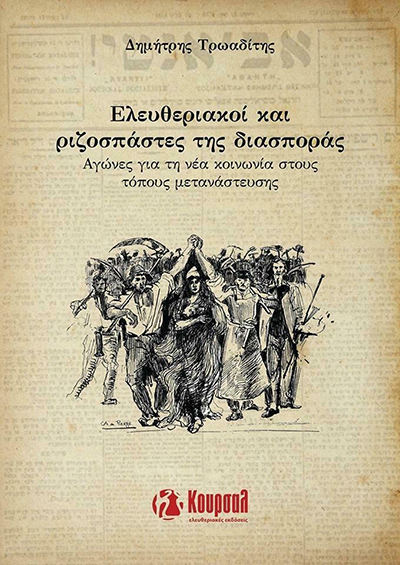by Jonathan Be
Thursday, March 8, 2012
Everyone is no doubt paying attention to the events in Greece where the financial oligarchy is bullying Greece into imposing a financial restructuring program that will cause much of the population to experience the miserable poverty that much of the population in Eastern Europe has come to experience since the 1990s when the free-market reforms prescribed by the IMF and EU financial institutions came into effect at the behest of local elites who took power. In the latest western creation, the narco-mafia state Kosovo, more than half of the population is unemployed. Countries like Albania and Romania who have become beholden to the EU economic agenda over the past 20 years are largely economically impoverished and rife with corruption. The EU has functioned as a tool for the main powers such as Germany and France to impose an economic agenda of their liking on the weaker states in Eastern Europe who have become reliant on foreign aid via the EU. With the current events taking place in Greece, it is worth noting the destructive role that American imperialism played in the past in Greece. A chapter from William Blum's book "Killing Hope" that focuses on American imperialist intervention exposes in detail the role America played in Greece shortly after world war 2 in propping up in the face of an armed rebellion from the population a violent corrupt state apparatus primarily staffed by conservative forces who collaborated with the Nazis. This would mark the beginning for Greece a near 30 year neo-colonial domination by America
William Blum "Killing Hope"
Greece 1947 to early 1950s - From cradle of democracy to client state
Jorge Semprun is a Spaniard, a Frenchman, a novelist and film-writer, former Communist, former inmate of Buchenwald. He was at the infamous Nazi concentration camp in 1944 with other party members when they heard the news:
For some days now, we had talked of nothing else. ... At first some of us had thought it was a lie. It had to be. An invention of Nazi propaganda, to raise the morale of the people. We listened to the news bulletins on the German radio, broadcast by all the loudspeakers, and we shook our heads. A trick to raise the morale of the German people, it had to be. But we soon had to face up to the evidence. Some of us listened in secret to the Allied broadcasts, which confirmed the news. There was no doubt about it: British troops really were
crushing the Greek Resistance. In Athens, battle was raging, British troops were retaking the city from the ELAS forces, district by district. It was an unequal fight: ELAS had neither tanks nor planes.
But Radio Moscow had said nothing, and this silence was variously interpreted.1
The British army had arrived in Greece during October and November 1944, shortly after the bulk of the Germans had fled, an evacuation due in no small part to ELAS, the People's Liberation Army. Founded during the course of 1941- 42 on the initiative of the Greek Communist Party, ELAS and its political wing EAM cut across the entire left side of the political spectrum, numbering many priests and even a few bishops amongst its followers. The guerrillas had wrested large areas of the country from the Nazi invaders who had routed the British in 1941.
ELAS/EAM partisans could be ruthless and coercive toward those Greeks who did not cooperate with them or who were suspected of collaboration with the Germans. But they also provided another dramatic example of the liberating effects of a world war: the encrusted ways of the Greek old guard were cast aside; in their place arose communities which had at least the semblance of being run by the local residents, inchoate institutions and mechanisms which might have been the precursor of a regenerated Greek society after the war; education, perhaps geared toward propaganda, but for the illiterate education nonetheless; fighting battalions of women, housewives called upon for the first time to act independently of their husbands' control ... a phenomenon which spread irrepressibly until EAM came to number some one to two
million Greeks out of a population of seven million.2
This was hardly the kind of social order designed to calm the ulcers of the British old guard (Winston Churchill for one) who had long regarded Greece as their private manor. The Great Man was determined that the Greek king should be restored to his rightful place, with all that that implied, and the British military in Greece lost no time in installing a government dedicated to that end. Monarchists, quislings, and conservatives of all stripes found themselves in positions of political power, predominant in the new Greek army and police; members of EAM/ELAS found themselves dead or in prison.3
In the early days of the world war, when defeating the Nazis was the Allies' over whelming purpose, Churchill had referred to ELAS as "those gallant guerrillas", and ELAS's supporters had welcomed the British in early November 1944 with a sign reading, "We Greet the Brave English Army. ... EAM."4
But the following month, fighting broke out between ELAS and the British forces and their Greek comrades-in-arms, many of whom had fought against ELAS during the war and, in the process, collaborated with the Germans; others had simply served with the Germans. (The British Foreign Secretary, Ernest Bevin, acknowledged in August 1946 that there were 228 ex-members of the Nazi Security Battalions—whose main task had been to track down Greek resistance fighters and Jews—on active service in the new Greek army.)5 Further support for the campaign against ELAS came from the US Air Force and Navy which transported more than two British divisions into Greece.''6 All this while the war against Germany still raged in Europe.
In mid-January 1945 ELAS agreed to an armistice, one that had much of the appearance and the effect of a surrender. There is disagreement amongst historians as to whether ELAS had been militarily defeated or whether the Communists in the ELAS and EAM hierarchy had received the word from Stalin to lay down the gun. If the latter were the case, it would have been consistent with the noted agreement between Stalin and Churchill in October 1944, whereby spheres of influence in Eastern Europe were allocated between the two powers. In this cynical (as Churchill acknowledged) Monopoly game Britain had landed on Greece. Churchill later wrote that Stalin had "adhered strictly and faithfully to our agreement of October, and during all the long
weeks of fighting the Communists in the streets of Athens not one word of reproach came from Pravda or Izvestia".7 Nor, as Jorge Semprun noted, from Radio Moscow.
"It is essential to remember," Professor D.F. Fleming has pointed out in his eminent history of the cold war, "that Greece was the first of the liberated states to be openly and forcibly compelled to accept the political system of the occupying Great Power. It was Churchill who acted first and Stalin who followed his example, in Bulgaria and then in Rumania, though with less bloodshed."8
A succession of Greek governments followed, serving by the grace of the British and the United States; thoroughly corrupt governments in the modern Greek tradition, which continued to terrorize the left, tortured them in notorious island prison camps, and did next to nothing to relieve the daily misery of the war-torn Greek people.9"There are few modern parallels for government as bad as this," CBS's chief European correspondent Howard K. Smith observed at the time.10
In the fall of 1946 the inevitable occurred: leftists took to the hills to launch phase two of the civil war. The Communists had wrenched Stalin's strangulating hand from their throats, for their very survival was at stake and everything that they believed in.
The British were weighed down by their own post-war reconstruction needs, and in February 1947 they informed the United States that they could no longer shoulder the burden of maintaining a large armed force in Greece nor provide sizeable military and economic aid to the country. Thus it was that the historic task of preserving all that is decent and good in Western Civilization passed into the hands of the United States.
Several days later, the State Department summoned the Greek chargé 'affaires in Washington and informed him that his government was to ask the US for aid. This was to be effected by means of a formal letter of request; a document, it turned out, to be written essentially by the State Department. The text of the letter, the chargé d' affaires later reported, "had been drafted with a view to the mentality of Congress ... It would also serve to protect the U.S. Government against internal and external charges that it was taking the initiative of intervening in a foreign state or that it had been persuaded by the British to take over a bad legacy from them. The note would also serve as a basis for the cultivation of public opinion which was under study."1
In July, in a letter to Dwight Griswold, the head of the American Mission to Aid Greece (AMAG), Secretary of State George Marshall said: It is possible that during your stay in Greece you and the Ambassador will come to the conclusion that the effectiveness of your Mission would be enhanced if a reorganization of the Greek Government could be effected. If such a conclusion is reached, it is hoped that you and the Ambassador will be able to bring about such a reorganization indirectly through discreet suggestion and otherwise in such a manner that even the Greek political leaders will have a feeling that the reorganization has been effected largely by themselves and not by pressure from without.12
The Secretary spelled out a further guideline for Griswold, a man the New York Times shortly afterwards called the "most powerful man in Greece".13 During the course of your work you and the members of your Mission will from time to time find that certain Greek officials are not, because of incompetence, disagreement with your policies, or for some other reason, extending the type of cooperation which is necessary if the objec-tives of your Mission are to be achieved. You will find it necessary to effect the removal of these officials.14
These contrivances, however, were not the most cynical aspects of the American endeavor. Washington officials well knew that their new client government was so venal and so abusive of human rights that even confirmed American anticommunists were appalled. Stewart Alsop for one. On 23 February 1947 the noted journalist had cabled from Athens that most of the Greek politicians had "no higher ambition than to taste the profitable delights of a free economy at American expense".15 The same year, an American investigating team found huge supplies of food aid rotting in warehouses at a time when an estimated 75 percent of Greek children were suffering from malnutrition.16
So difficult was it to gloss over this picture, that President Truman, in his address to Congress in March 1947 asking for aid to Greece based on the Greek "request" (the "Truman Doctrine" speech), attempted to pre-empt criticism by admitting that the Greek government was "not perfect" and that "it has made mistakes". Yet, somehow, by some ideological alchemy best known to the president, the regime in Athens was "democratic", its opponents the familiar "terrorists".17
There was no mention of the Soviet Union in this particular speech, but that was to be the relentless refrain of the American rationale over the next 2 1/2 years: the Russians were instigating the Greek leftists so as to kidnap yet another "free" country and drag it kicking and screaming behind the Iron Curtain.
The neighboring Communist states of Bulgaria, Albania, and particularly Yugoslavia, in part motivated by old territorial claims against Greece, did aid the insurgents by allowing them important sanctuary behind their borders and furnishing them with military supplies (whether substantial or merely token in amount is a
debatable question). The USSR, however, in the person of Joseph Stalin, was adamantly opposed to assisting the Greek "comrades". At a meeting with Yugoslav leaders in early 1948 (a few months before Yugoslavia's break with the Soviet Union), described by Milovan Djilas, second-in-command to Tito, Stalin turned to the foreign minister Edvard Kardelj and asked: "Do you believe in the success of the uprising in Greece?"
Kardelj replied, "If foreign intervention does nor grow, and if serious political and military errors are not made." Stalin went on, without paying attention to Kardelj's opinion: "If, if! No, they have no prospect of success at all. What, do you think that Great Britain and the United States—the United States, the most powerful state in the world—will permit you to break their line of communication in the Mediterranean? Nonsense. And we have no navy. The uprising in Greece must be stopped, and as quickly as possible."18
The first major shiploads of military assistance under the new American operation arrived in the summer of 1947. (Significant quantities had also been shipped to the Greek government by the US while the British ran the show.] By the end of the year, the Greek military was being entirely supported by American aid, down to and including its clothing and food. The nation's war-making potential was transformed: continual increases in the size of the Greek armed forces ... fighter-bombers, transport squadrons, air fields, napalm bombs, recoilless rifles, naval patrol vessels, communication networks ... docks, railways, roads, bridges ... hundreds of millions of dollars of supplies and equipment, approaching a billion in total since the end of the
world war... and millions more to create a "Secret Army Reserve" fighting unit, composed principally of the ex-members of the Nazi Security Battalions referred to earlier.19
The US Military Mission took over the development of battle plans for the army from the ineffective Greek generals. The Mission, related British military writer Major Edgar O'Ballance, "took a tough line and insisted that all its recommendations be carried into effect, at once and in full".20 Eventually, more than 250 American army officers were in the country, many assigned to Greek army divisions to ensure compliance with directives; others operated at the brigade level; another 200 or so US Air Force and Navy personnel were also on active duty in Greece.
All military training methods and programs were "revised, revitalized and tightened up" under American supervision21... infantry units made mote mobile, with increased firepower; special commando units trained in anti-guerrilla tactics; training in mountain warfare, augmented by some 4,000 mules (sic) shipped to Greece by the United States ... at American insistence, whole sections of the population uprooted to eliminate the guerrillas' natural base of operation and source of recruits, just as would be done in Vietnam 20 years later.
"Both on the ground and in the air, American support was becoming increasingly active," observed CM. Woodhouse, the British colonel and historian who served in Greece during the mid-1940s, "and the theoretical line between advice, intelligence and combat was a narrow one."22
The Greek leftists held out for three terrible years. Despite losses of many tens of thousands, they were always able to replenish their forces, even increase their number. But by October 1949, foreseeing nothing but more loss of lives to a vastly superior destruction-machine, the guerrillas announced over their radio a "cease fire". Itwas the end of the civil war.
The extent of American hegemony over Greece from 1947 onwards can scarcely be exaggerated. We have seen Marshall's directives to Griswold, and the American management of the military campaign. There were many other manifestations of the same phenomenon, of which the following are a sample:
In September 1947, Vice-Prime Minister Constantine Tsaldaris agreed to the dissolution of the government and the creation of a new ruling coalition. In doing so, said the New York Times, Tsaldaris had "surrendered to the desires of Dwight P. Griswold ... of [US] Ambassador MacVeagh, and also of the King".23 Before Tsaldaris addressed the Greek legislature on the matter, MacVeagh stepped in to make a change to the speech.24
Over the next several years, each of the frequent changes of prime minister came about only after considerable American input, if not outright demand.25 One example of the latter occurred in 1950 when then American Ambassador Henry Grady sent a letter to Prime Minister Venizelos threatening to cut off US aid if he failed to carry out a government reorganization. Venizelos was compelled to step down.26 The American influence was felt in regard to other high positions in Greek society as well. Andreas Papandreou, later to become prime minister himself, has written of this period that "Cabinet members and army-generals, political party leaders and members of the Establishment, all made open references to American wishes or views in order to justify or to account for their own actions or posi-tions."27
Before undertaking a new crackdown on dissidents in July 1947, Greek authorities first approached Ambassador Macveagh. The ambassador informed them that the US government would have no objection to "preventive measures if they were considered necessary". Reassured, the Greeks went ahead and rounded up 4,000 people in one week.28
An example of what could land a Greek citizen in prison is the case of the EAM member who received an 18-month sentence for printing remarks deemed insulting to Dwight Griswold. He had referred to the American as "the official representative of a foreign country".29
"In the economic sphere," Andreas Papandreou noted, the United States "exercised almost dictatorial control during the early fifties requiring that the signature of the chief of the U.S. Economic Mission appear alongside that of the Greek Minister of Co-ordination on any important documents."30
Earlier, American management of the economy may have been even tighter. A memorandum from Athens dated 17 November 1947, from the American Mission to Aid Greece to the State Department in Washington, read in part: "we have established practical control ... over national budget, taxation, currency issuance, price and wage policies, and state economic planning, as well as over imports and exports, the issuance of foreign exchange and the direction of military reconstruction and relief expenditures."31
There was, moreover, the creation of a new internal security agency, named and modeled after the CIA (KYP in Greek). Before long, KYP was carrying out all the endearing practices of secret police everywhere, including systematic torture.
By the early 1950s, Greece had been molded into a supremely reliable ally client of the United States. It was staunchly anti-communist and well integrated into the NATO system. It sent troops to Korea to support the United States' pretence that it was not simply an American war.
It is safe to say that had the left come to power, Greece would have been much more independent of the United States. Greece would likely have been independent as well of the Soviet Union, to whom the Greek left owed nothing. Like Yugoslavia, which is also free of a common border with the USSR, Greece would have been friendly towards the Russians, but independent.
When, in 1964, there came to power in Greece a government which entertained the novel idea that Greece was a sovereign nation, the United States and its Greek cohorts, as we shall see, quickly and effectively stamped out the heresy.




